Gambling addiction: types and methods of struggle

Gambling addiction affects people of all ages. Social status, upbringing, profession, hobbies and environment do not affect the likelihood of developing gambling addiction. For a long time gambling addiction was considered just a bad habit, but then it was included in the list of mental illnesses, addictions that can and should be treated.
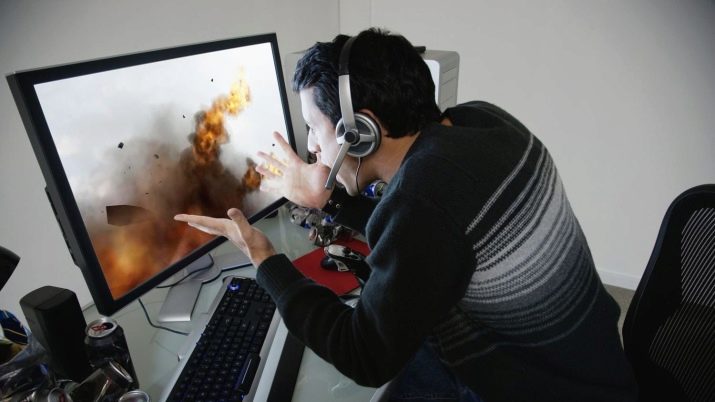
Peculiarities
Gambling addiction in the broad sense of the word is called any pathological addiction to the game process. This also applies to gambling, video games, and games on stock exchanges. Therefore, there are several names for one problem - gambling, gambling addiction. Gambling addiction is one of the most widespread human addictions in the world., she concedes leadership only to such bad habits as alcoholism and drug addiction. But the catch lies in the fact that bad habits like to be grouped, and therefore gamblers often suffer from alcoholism and drug addiction.
Gambling addiction refers to non-chemical types of addiction. In medical terms, this is an addiction that is accompanied by an all-consuming passion for the game. For a long time it was not considered a disease, but recent decades have forced doctors to reconsider their attitude to the problem. - the number of addicted to the game has grown several dozen times and it became clear that it was time for science and medicine to intervene. The prevalence of gambling addiction is estimated by WHO as epidemic.
There are more and more gaming devices, massive video games, into which millions of people are drawn.Measures to restrict slot machines and casinos help, but not as well as it seemed at first - gamblers have moved to the Internet and free gambling zones, where gambling is allowed, and illegal casinos and gambling halls are flourishing.

Gambling addiction has changed, now material gain is not the main incentive for the player. Addiction also develops on games, which, in general, do not imply a win - people are drawn into the process itself.
The gambling addict is significantly limited in his outlook. His area of interest is very narrow, he is almost constantly in an alarming state, the coordinate system of values, which is important for normal human life, is shifting - family, children, health, professional realization go to the second, third and fourth plans. The game takes the first place in the life of a gambling addict.
Those who do not consider gambling addiction to be a disease are mistaken. Gambling addiction is officially included in the ICD-10 as a mental illness under the code F 63.0. The fact that this is a real disease is recognized by doctors all over the world.
Play is an important cognitive process that helps children master the laws of the universe, and therefore the love of play in general is in every person's blood. The peculiarities of gambling addiction lie in the fact that a person experiences a certain "bias" - a game that in itself cannot cause harm, becomes the most important component of life. The fact is that at the time of the game, a person can feel strong emotions that are inaccessible to him in everyday life. Therefore, playing something after a week of work, for example, is not forbidden for emotional "relaxation". And many, indeed, manage to even periodically gamble without getting involved in them to the point of pathological addiction.
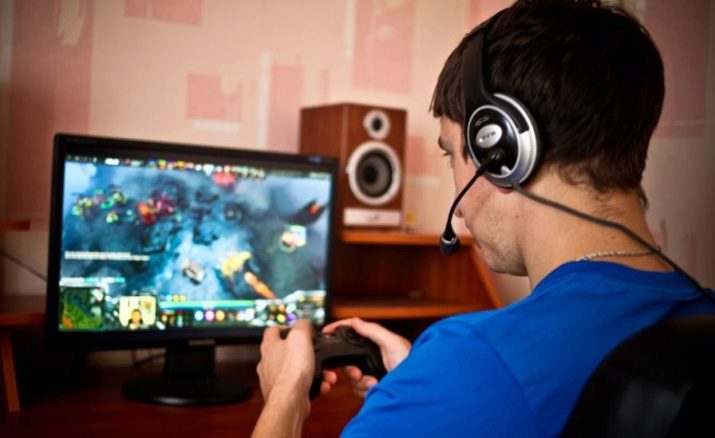
In the case of gamblers, everything is different. They are unable to overcome the painful addiction that crowds out all other desires and values, devaluing the very meaning of human life. The mechanisms of gambling addiction are very similar to those of alcoholism. - a person cannot suppress an irresistible desire, feeling the withdrawal syndrome actually on a physical level. He is incapable of being critical of himself, of his actions, does not control them and cannot reasonably assess the environment. A person in a fit of uncontrollable desire sits down to play at any time, without soberly assessing their time and financial capabilities, without looking back at the needs of the family, their own needs. The game ends for him when the attack passes. And until the next attack, he is able to critically look at his actions. And the next attack will surely happen. Therefore, gambling addiction is considered a chronic mental illness prone to relapse and progression (attacks become more frequent and stronger over time).
No matter how great the willpower of a person, he is unable to exert an effort of will to influence his impulses to join the game process.
Sociologists drew attention to the fact that in the most prosperous countries the level of gambling addiction among adults is lowerthan in countries with unstable economies and other problems (0.4% versus 7%). For example, in Canada, the prevalence of gambling addiction does not exceed 1.5%, and in Russia and the former CIS countries - from 3.5%. Children and adolescents, regardless of their country of residence, suffer from gambling addiction twice as often as adults.

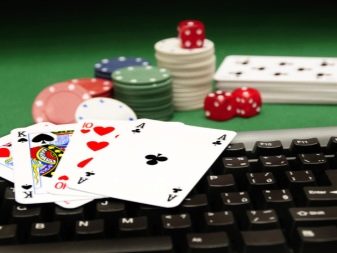
Varieties
Gambling addiction has several forms. All of them are dangerous not only for health, but also for human life. The classification is based on the type of games.
Gambling with material incentives
These are casinos, slot machines, online casinos, card games, roulette and so on. Such games have an ancient history. But the first casino was opened in Venice in the 17th century. Since then, gambling houses have spread all over the world, and now they are also present in the virtual space.
Gambling is attractive to a person in that it allows him to experience such an intensity of passions that he simply has nowhere to get in his everyday life. In addition, an important factor provoking the development of addiction is the prospect of getting rich, hitting the jackpot, making easy money or other values.
Gambling ranks first in the number of addicted gamblers in the world.
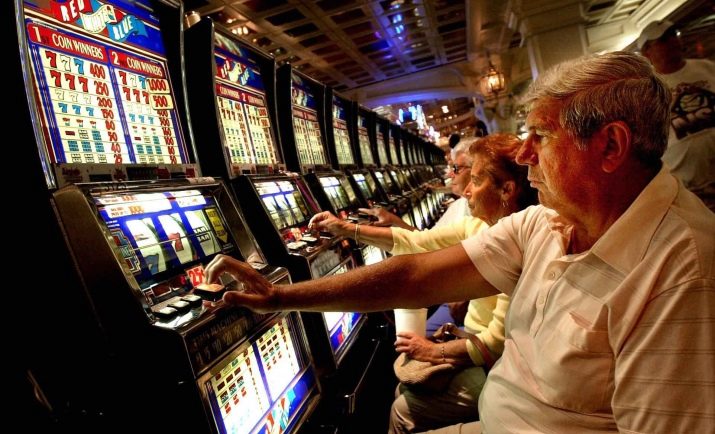
Computer games and games online
The gaming industry has offered humanity more than just an opportunity to win money. She offered him an alternative new world in which everyone can become whoever they want. Is this not a dream, not a utopia? As a result the number of video game addicts has skyrocketed in recent yearsand today this type of addiction is almost as prevalent as pathological addiction to gambling, and material reward is no longer an incentive for gamblers.
The strongest addiction, according to doctors and scientists, is caused by network games, especially MMORPGs. After several cases, when people (including children) died of exhaustion, lack of sleep during a multi-day game. WHO recognized this type of addiction as a disease and included it in the ICD-11 (the classifier will replace the ICD-10 at the beginning of 2022).
This type of addiction develops due to dissatisfaction with the real world, instability of the psyche, the desire to be realized in the absence of the opportunity or desire to do it in reality. In virtual space, it is easy to be a hero, not to die, resurrect, conquer, overcome, reach heights and even rule galaxies. At the same time, the creators of the games also took care of the reward as an incentive - most games have a cycle that provides for the player to receive some intangible rewards for the passed levels and achievements, and this stimulates the person to continue the gameplay.

Modern researchers of gambling addiction argue that pathological mania can develop due to excessive enthusiasm for any game. In 2018, a list of games was published that most often cause the strongest mental addiction that needs qualified medical care:
- Dota-2;
- Madden;
- Grand Theft Auto V (GTA);
- Minecraft;
- EverQuest;
- The Sims;
- World of Warcraft;
- Pokemon;
- World of Tanks.
This list is far from complete. New games appear almost daily, gaining millions of fans, among whom there are certainly those who develop persistent chronic addiction.


Lotteries, sweepstakes, financial exchanges
You can assert as much as you like that such hobbies are not a game, not an addiction or a disease. But the fact remains. Excessive obsession with lottery tickets, sports betting, gambling on differences in currencies or stock prices are also considered a form of gambling addiction.
The organizers of lotteries and sweepstakes are not at all concerned with the financial condition of the players. They care about their own profits. But to play the lotteries and place bets, people are forced, oddly enough, by the belief in miracles. Even in childhood, we are told fairy tales in which something happens in a miraculous inexplicable way, and the main characters, who have experienced hardship and grief, suddenly become happy and rich (the tale of the pike and Emela, about the lamp of Aladdin and others).
Most often, far from rich people suffer from this type of addiction. Chronic pathological "lottery players" are people whose living standards are below average, according to sociologists. They are ready to give their last pennies for a lottery ticket, hoping to find their "Aladdin's lamp" there. Approximately the same is the average portrait of a frequenter of sweepstakes.
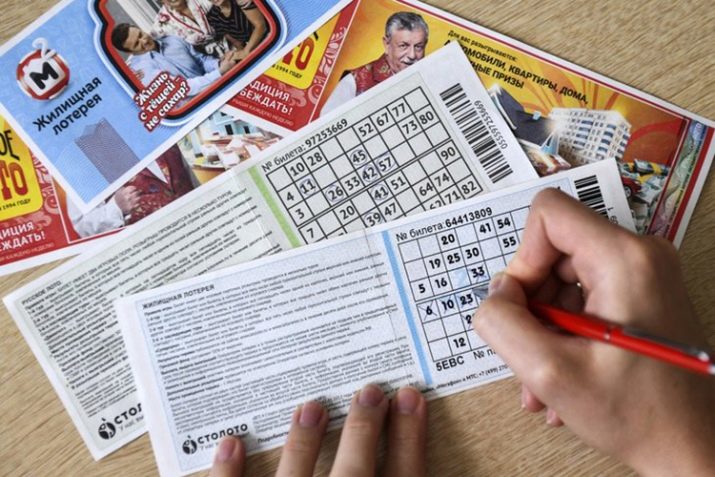
Speculation in the foreign exchange and stock markets requires certain skills. And here dependence develops in certain people - well versed in mathematics, probability theory, politics, economics, quite educated. In fact, this is a common gamble, although it is represented as a "work of the mind." Oddly enough, not so much depends on a person and his mental abilities in the stock market.
The situation is aggravated by the fact that today many such sites on the Internet not only offer a person free training, but are even ready to provide loans for further rates. Very quickly, the player falls into heavy financial bondage, and he is again offered to get out of it with the help of refinancing and further play. Debt grows, the likelihood of complete bankruptcy and all the negative consequences arising from this increases, including serious mental disorders, social maladjustment and suicide attempts.
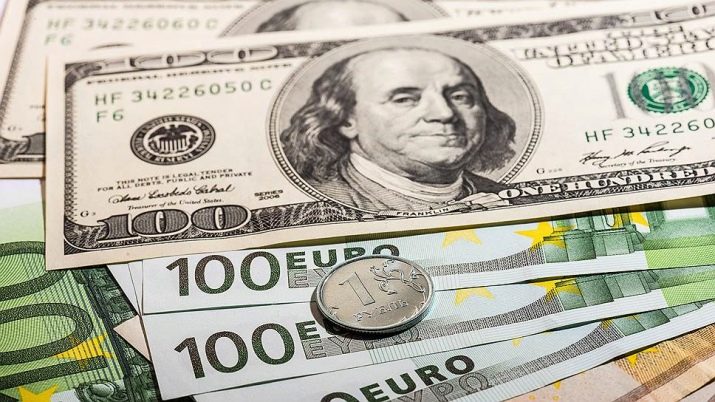
Signs
The behavior of a gambling addict is quite typical. In general, it does not differ much from the behavior of an alcoholic or a drug addict, since in both chemical and non-chemical addictions, the symptoms in a person are approximately the same.
The circle of interests of a person with gambling addiction is narrow. And even if earlier he was fond of reading, traveling, communicated a lot, participated in archaeological excavations and took fencing lessons, then with the onset of gambling addiction all interests lose their attractiveness, only interest in the game remains. It is easy to understand after talking with a person - he is especially pleased to discuss the details of the game, his experience, subtleties and secrets. Other topics not related to the gameplay and everything that is directly related to it are perceived with irritation or extremely inattentive.
The gambler stops communicating with his old friends, stops paying attention to family members and himself, may forget to wash, eat, dine. He neglects the duties and affairs that require his participation, since all this distracts him from the gameplay. He plays whenever possible. If there is no opportunity (the lights are turned off, there is no Internet, the computer is broken, and so on), the gambler is very nervous, he is annoyed, he can break down at loved ones, scream. At the same time, he can show wonders of ingenuity only in order to quickly repair the computer, fix the electricity, so that the game process becomes possible again.

If circumstances require interrupting the game, after a short time the person begins to experience the strongest anxiety and anxiety, he needs to return to the game. This craving is as strong as the craving of an alcoholic for a glass of alcohol, a drug addict for another dose of a prohibited substance. Doctors noticed that in 95% of experienced gambling addicts, withdrawal symptoms in case of depriving a person of the opportunity to play are identical to the clinical symptoms of withdrawal symptoms:
- mood drops sharply;
- headache of varying intensity appears;
- sleep is disturbed, insomnia appears;
- it is extremely difficult for a person to concentrate on something, to concentrate his attention;
- “gaps” appear in memory, more often in short-term memory (a person cannot remember what he ate for breakfast in the morning, what he did last night);
- muscle pain and tremors of the limbs and lips may appear.
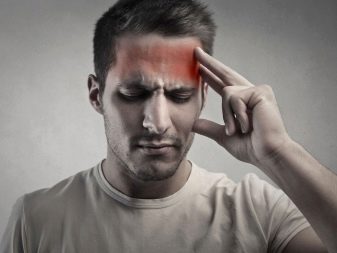

Having gained access to the game, a person with such a disorder cannot stop on their own, either after a series of losses, or after winning. During periods of "enlightenment" the gambling addict understands perfectly well that his hobby harms both him and those around him, and therefore can make decisions for himself never to play again. But this decision is almost never implemented, because there are many reasons why a person again and again sits down at a computer or goes to a gambling establishment.
Psychiatrists consider gambling addiction to be a very difficult and persistent disorder, as it is constantly supported by special errors of thought. Tactical mistakes contribute to the occurrence of a state close to the state of trance. In it, a person is sure that he can handle everything, that "today I will definitely be lucky, I know", that "only a win will help me to pay back my debts."Strategic irrational mistakes in the process of thinking provoke a positive attitude of a person towards his addiction - he understands that he is addicted, but justifies this for a lot of reasons. Such beliefs usually sound like this: "Money decides everything, opens any doors", "Everything is bought and sold." At the same time, a person, of course, is not satisfied with what he has, but constantly dreams of how his life and himself will change when he finally manages to hit a big jackpot.
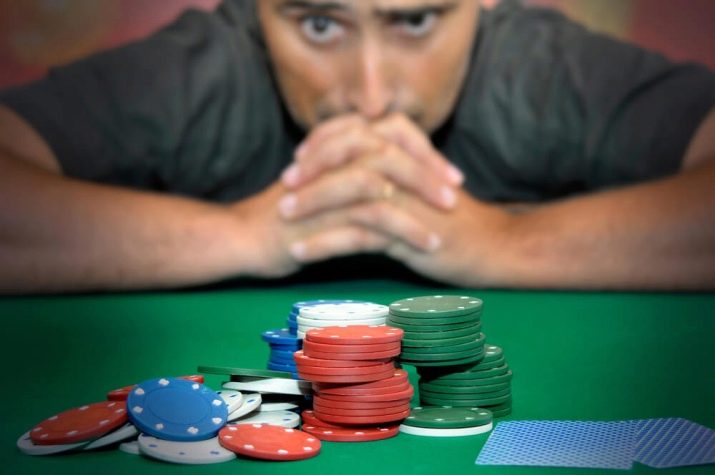
The behavior of a gambling addict is always cyclical. It is quite predictable, it is enough to know the sequence of phases and their symptoms.
- "Light period" (period of abstinence) - a person refuses to play, may admit the inexpediency of further enthusiasm for the process, feel a sense of guilt.
- A period of fantasies and projections - thoughts about the game appear, their intensity increases, anxiety and absent-mindedness begin to appear. Mentally, a person is already playing and winning, scrolling the event of his victory in his head. During this period, increased sexual desire is possible, there is a need to do something, while the addict often loads himself with completely aimless work "for the sake of work."
- Decision period - thoughts about the game reach an obsessive character, there are signs of depression, irresistible emotional attraction. The addict can break down, scream for no reason, he is very irritated over little things. The gambler at this stage is looking for a reason to play.
- Rejection period - a very dangerous period when a person experiences an illusion about his willpower. It seems to him that he was able to defeat the urge to play one more time. This is just an illusion, a deception. The addict relaxes somewhat and systematically enters the next phase.
- Implementation period - received a salary, quarreled with loved ones, there was a lot of free time. The reason may actually be anything, or it may not exist at all. The solution is being implemented. The person enters the game. The trance state described above appears (on average, it can last from 4 to 15 hours). He is happy, he believes in himself, he experiences strong emotions.
- Return to reality period - comes immediately after the emotional stress begins to subside. The person is aware of what happened and cannot explain to himself why it happened again. He is depressed. After this comes repentance, regret, and the "light period" begins again.

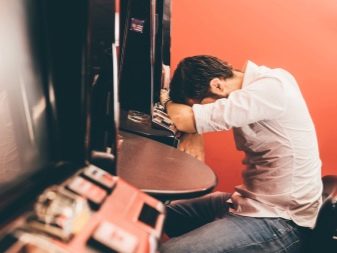
Everything is repeated in this order. Over time, each period is shortened. The longer the addiction persists, the shorter the periods and the stronger the addiction. With dependence for more than six months, a person begins to lie a lot and without much benefit, conflict, sensitivity increases, the level of empathy decreases (the gamer loses the ability to empathize with other people), a tendency to criminal and criminal actions appears. Performance decreases, memory deteriorates.
The personality degrades both externally and internally. External manifestations - sloppy appearance, dirty clothes, unkempt hair, hands, face.

Causes of occurrence
Why gambling addiction develops in children, adolescents, adults, it is difficult to answer unequivocally. There are many points of view, scientific concepts. Experienced psychiatrists believe that all of them affect the likelihood of developing addiction to a greater or lesser extent: this is both stimulation by possible gain, and the errors of the thought process described above. People with an unstable psyche, addicted and even creative natures, very impressionable people, anxious and insecure in the real world are more susceptible to the development of gambling addiction. Since this description is suitable for at least half of children and adolescents (due to the age characteristics of the psyche), the prevalence of gambling addiction among them, for obvious reasons, is several times higher than among adults.
The prerequisites for the development of the disease can be laid down in childhood, and can be acquired later. Experts believe that the likelihood of pathological addiction is higher for those who are used to spending leisure time playing card games, even if the family does not play for money.
The positive and even “heroic” image of the players is found in films, books, and the emotional perception of such images can also become that invisible countdown point, which sooner or later will lead a person to the game room or make him sit down to play a video game.
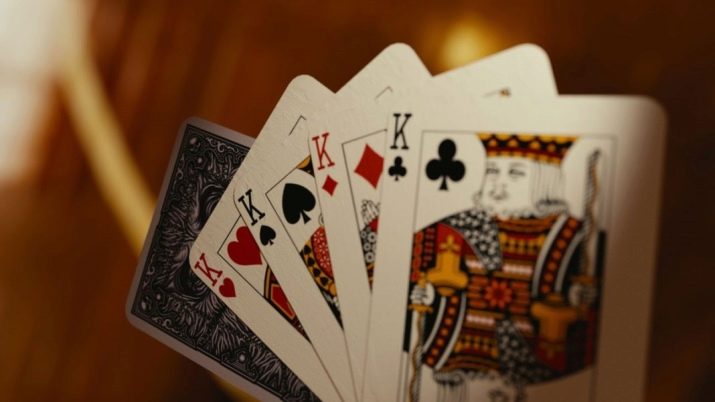
For most children and a considerable number of adults, existence in the virtual world seems easier, more attractive, more interesting than ordinary everyday life, in which neither kill a dragon nor steal a princess. You can tell a teenager or an adult as much as you like about the negative aspects of gambling addiction - debts, loss of money, respect, family, friendship, communication, your own "I". All this will invariably remain outside the perception and attention of a person predisposed to play.
If we try to explain gambling addiction in terms of biological, biochemical and physiological processes, then the reason for the formation of addiction is the incorrect operation of the so-called "pleasure center" in the brain... Memories of the gaming atmosphere, victories and triumphs trigger the activation of this part of the limbic system. In normal mode, this center of the brain ensures that a person experiences pleasure by quenching his thirst, eating, having sex, that is, with natural needs. In the case of gambling addiction, the pleasure center "gives a systemic failure" - the game process begins to deliver satisfaction, at this moment the body will release neurotransmitters each time, triggering reactions similar to the reactions of an alcoholic or drug addict to a glass of alcohol or a dose of intoxicating substance.

Who is at risk of getting into the ranks of gamers:
- people who have received the wrong upbringing in the family (too strict or overly protective);
- people whose parents or acquaintances played, play and do not hide their addiction;
- those who, since childhood, are accustomed to spending their free time exclusively playing games (any);
- people suffering from materialism - pathological approval of material values, things, a craving to possess them;
- people suffering from envy of the financial condition of others, of the material situation of outsiders;
- children and adults prone to reassessment of values, who do not have their own clear position in life;
- children and adults prone to depression, anxiety disorders.


Stages
In 1984, R. Caster, a researcher of mental disorders among gambling addicts suggested distinguishing several stages of this dependence:
- winnings;
- losses;
- disappointment.
In the first stage, the gambler plays infrequently, and sometimes, in general, rarely. It is noteworthy that he often wins, in connection with which a primary erroneous attitude occurs in his mind - that he is literally omnipotent and incredibly lucky. Imagination is played out, creating a rosy picture of a comfortable and wonderful future. The stakes are growing (the time for computer games is increasing), at this stage, real investments in online games are possible. Optimism goes off scale, and a person, without suspecting it, already turns out to be addicted.

In the stage of losses, a person begins to play with concentration, often alone, he likes to boast of his victories and winnings, his luck, and in moments of bragging he himself believes in what he says. At this stage, he already thinks and thinks mainly about the gameplay. It is no longer possible to stop, many lies appear in a person's life, he devotes less time to friends, family and work. A change in personality begins - shame disappears, irritability appears, a person quickly gets tired, does not want to communicate, if we are talking about gambling addiction, then it is at this stage that debts appear and a refusal to pay for them.
The stage of disappointment is associated with the aggravation of the degradation process. Personal reputation, professional responsibilities and relationships with loved ones, in fact, cease to worry the gambler, and the time he spends on games increases even more. Sometimes his conscience torments him, but he certainly finds the cause of his troubles not in himself, but in those around him, he torments them with unfounded accusations and hatred.
At this stage, a person can withdraw into himself, withdraw, start consuming large quantities of alcohol, drugs, break the law. According to statistics, up to 14% of gambling addicts try to commit suicide attempts at this stage.

In order to better understand why a gambler does not act otherwise, why he can’t just pick up and give up his addiction, you should know that each phase of the game cycle (abstinence - projections and thoughts - making a decision - rejecting a decision - implementation - disappointment) are characterized by their own behavioral and physiological syndromes, which largely determine the sequential development of the stages.
- When addicted to play, the addict focuses on everything related to the gameplay. At the physiological level, vegetative reactions can be observed - drops in blood pressure, flushing, increased sweating. Initial changes occur in the psyche, the so-called ideational disturbances, accompanied by obsessive thoughts about the game.
- The trance syndrome that occurs during the implementation phase of the solution can be accompanied by increased pressure, pressing pain in the heart. Rational thinking is lost. A surge of strength appears. It can last up to half a day.
- In the winning stage, the addict experiences a syndrome that is called the winning syndrome. It can last from a couple of hours to 1-2 days. It is associated with even greater euphoria, self-confidence.
- In the losing stage, each syndrome after defeat lasts up to two days and is manifested by anxiety, anger, resentment, aggression. It is at this moment that gambling addicts become superstitious - they can ask higher powers for help, pray, and carry out rituals "for good luck" that are understandable to them alone.
- In the stage of disappointment, a feeling of emptiness and fatigue prevails. Against the background of depression and sleep disturbances, the most sad consequences are not excluded.
Knowing what cycles a person with a gambling addiction goes through before the game, relatives and friends can quickly learn to understand what will happen next, what actions and actions the addicted relative will take. This knowledge can be used to prevent attacks, suicides.
And also play stages and phases are important for the treatment of gambling addiction, since it is based on a certain impact on a person in different phases of his "play life".


Treatment methods
Despite the fact that it is not difficult to recognize gambling addiction, it is the doctor who should make the appropriate diagnosis. And for this you need to decide on the main thing - to go to a medical specialist and ask for help. This must be done by the gambling addict himself and his relatives. Since the addict cannot assess everything objectively, it is often from relatives or friends that the doctor receives important information to determine the stage and depth of addiction.
It is possible to get rid of gambling addiction at home, but the likelihood of "breakdown" when a person is in a familiar environment is higher, and therefore it is recommended to treat gambling addicts in a psychiatric or narcological hospital. It is in the interests of relatives not to insist that the addict be allowed home after the appointment of treatment - it is almost impossible to control the craving for the game, and the gambling addict cannot critically perceive himself and reality. Therefore, it is the stationary conditions that are optimal in order to defeat addiction.
To cure a gambling addict, you need a comprehensive therapeutic approach: taking medication and continuous concomitant psychotherapy.The methods that are used to eliminate addiction are numerous - these are cognitive psychotherapy (with a change in incorrect attitudes, those very "mental system errors"), and rational therapy (with correcting thinking errors), analytical studies (with an impact on the unconscious), as well as suggestive and hypnosuggestative psychotherapy (sessions of suggestion in a state of wakefulness, trance and hypnosis treatment).
It is important to practically re-teach a person to perceive reality, to build and maintain relationships with others. The psychology of this dependence is very multifaceted, and therefore the effect on the patient is multifaceted.

The goal is considered achieved if the patient changes attitudes to more real ones - he understands that he needs to work, study, achieve goals on his own, and not rely on some ephemeral luck, understands that he himself is the master of his life and is able to reach any heights in it not through gambling or virtual reality, but through their knowledge, skills, talents, abilities.
Psychotherapy is applied individually and in groups. Working in a support group is very important, because the addict can see his problem from the outside by the example of others. To eliminate sleep disturbances, anxiety and irritability, simultaneously with the psychotherapeutic course, a course intake of hypnotics, powerful sedatives, is prescribed. If a gambling addict ends up in a hospital already in the stage of disappointment, with severe depression and suicidal thoughts, he is additionally prescribed drugs - antidepressants. With bouts of aggression, tranquilizers can be prescribed in a short course.
After discharge from the hospital, the patient continues to be monitored by a psychiatrist or psychotherapist, he is recommended to visit a support group, if necessary, consult a psychologist, psychiatrist, and take prescribed medications.


Many people think that there is a quick technique for coding gambling addiction, that the doctor will say a few words to the patient under hypnosis or make some kind of injection - and everything will go away as it was not. There are no such methods. What is popularly called coding is a complex of psychotherapy with drug support, and the treatment is almost always quite long. How successful it will be depends on how much the addict himself is willing to accept help. You can cure addiction, you can fight it, but only if the patient has his own motivation. If he was forcibly brought to the doctor by upset relatives, and he does not intend to cooperate with the doctor, then the likelihood of effective treatment is almost minimal.
In the end, a lot depends on the relatives, relatives and friends of the gambler, on their correct attitude and behavior in this situation. First of all, they must understand that gambling addiction is not bad behavior, but a disease. And therefore, no lectures on how to live correctly will not correct the situation. Tantrums, shouts, threats, blackmail will not help. The world is distorted not only for the addict, but also for those around him. This effect is called the codependency effect.
The correct reaction is not to indulge the addict's weakness, not to justify him and not to blame himself for the trouble. That's right - to fight for your dignified existence and the material resources of the family. Relatives will have to take control of home bookkeeping and the entire way of life of the family themselves. The gambling addict's requests, manipulations, threats and accusations need only one answer - a firm and decisive refusal.
But leave him an "open door" - make it clear that you are always ready to help when he decides to end addiction. Try to convince him that the problem can be solved by contacting a healthcare professional.

Possible consequences
Pay attention to the name of the disease. It has the word "mania" in it.Like most manias, gambling addiction tends to get worse and worse if the person is left untreated. As a result, his life will be destroyed, relations with loved ones will be interrupted, friends and colleagues will leave, he will be left alone. The personality will collapse from the inside, degradation will touch all its sides. The biggest mistake of those who like to play is that they are sure that the disease is dangerous for anyone, but not for them, this will never happen to them, there will be no harm. This is what every gambling addict thinks at the initial stage. There are no exceptions.
Excessive passion for gambling (casinos, slot machines, online casinos, stock exchanges and stock platforms) leads to the development of mental illness, according to statistics, in 90% of cases. In varying degrees and stages, the disease will occur in 9 out of 10 players. Gambling addiction almost always leads to the collapse of a career - studies or work fade into the background, a person discredits himself as a specialist, professional, student. Financial problems are also inevitable - debts, loans that have nothing to pay with, collectors, threats and courts.
Regulars of gambling establishments and online casinos usually fail to maintain warm family relations. Any patience of parents, partner, children has its limits, and therefore, in most cases, the relationship ends rather quickly - loudly, traumatically, with smashing dishes (faces), divorce and division of property (if the bailiffs have not yet managed to arrest him).

In most cases, gambling addiction exacerbates existing alcohol problems, and if they did not exist before, they usually appear. Alcoholism or drug addiction aggravate the already unattractive position of the gambling addict. Violation of the law is also quite logical: many gamblers, in order to get money for the game, commit crimes (robbery, fraud, murder). Long-term dependence leads to the development of concomitant mental disorders, which at one point can lead a person to serious self-harm or suicide.
Computer games, although they seem less dangerous, can cause an equally list of negative consequences, especially for children and adolescents, whose psyche does not stand much earlier. This is fraught with complete disintegration of the personality, and then even psychiatrists will be powerless. Suffice it to recall how teenagers, who have forgotten who they really are, take up real weapons and go to their school or university, where they cold-bloodedly shoot, cut, blow up not game bots, but real people, living, with whom they were connected yesterday warm and even friendly relations, love, affection.
The loss of "I" is the most dangerous possible consequence of addiction to video games.

In addition to it, there are less tragic, but no less serious consequences. The gamer loses contact with the real world, he has no friends, he has ruined relations with his parents, relatives, acquaintances. He is not interested in the lives of others and the world around him. Adaptive abilities, communicative inclinations and learning abilities are lost. As a result, the chances of living an interesting and fulfilling life in which you can truly be a hero are reduced.
Excessive passion for video games can cause postural disorders in children, mental changes, decreased vision, and neurological disorders. There are several cases when a gamer refused to eat, not finding time for this, fearing to interrupt the game, which became the cause of death. And also there are cases when the craving to play overpowered even physiological needs - the child was dying because for several days spent in the game, he did not empty his intestines, did not drink water.

Prophylaxis
In order not to face gambling addiction in your own child and not create psychological prerequisites for the development of such a disease in the future, you need to clearly understand that children who are sufficiently busy with business simply cannot devote much time to games. Therefore, the advice of a psychologist for parents who want to protect a child from adversity is quite simple.
- Plan your child's time so that the schedule of the day, regardless of the age of the son or daughter, has no more than 20-30 minutes left for games. This applies to board games, computer and mobile applications. WHO does not recommend playing video games at all for children under 5 years of age.
- Entertain a child from an early age with sports - after all, it makes it possible to experience the very acute emotions that gambling addicts chase after. Sport provides an opportunity to be a winner and a loser, a champion and a junior, and there, too, incentive awards are given for achievements. Isn't it an alternative?
- Support your child in the desire to communicate and communicate with family, friends, friends and colleagues yourself. Go on a visit, invite guests to your place, visit exhibitions, cinemas, concerts together, pack your backpacks for a hike and a picnic.
- Provide your child with an interesting hobby. Whatever it is - collecting stamps or modeling from clay, hobby should give the child pleasure, and this is also an excellent alternative to those pleasant emotions that a gambling addict experiences at the first stage of addiction.
- Set your priorities correctly and teach your child the same. Playing at the computer turns into a problem only when they try to fill the voids with it - time that is not occupied by anything. Even if the child really likes to play something on the computer, then just set a hard deadline - take no more than half an hour to an hour a day to play. Follow the same rule yourself. Unfortunately, more and more often parents try to keep their child busy with a computer or gadget in order to get time for household chores, for personal needs. Doing this is strongly discouraged.
- Learn to relax and teach your child the same. Children and adults with a high level of stress load are more susceptible to gambling addiction. And they begin to play as rest, relaxation, distraction from problems and affairs. If you learn to be distracted and relax in other ways, then there will be no need for the gameplay. Normal natural relaxation is leisurely walks with the family, meditations, listening to pleasant music, breathing exercises, swimming, going to the bathhouse.


Don't be negative about games. In moderation, virtual reality can even be useful, serve as a teaching, developmental function. The game, if it is age appropriate, does not contain scenes of violence, blood, can be an excellent training for attention, reaction speed, creativity and the ability to look for non-standard solutions. The main thing is not to upset the balance between norm and pathology. If you do not make a cult out of the game, then addiction will be unlikely.
But if you notice that the child is too keen on the game, talking only about it, do not hesitate to contact a psychologist. The sooner help is provided, the less serious the consequences may be.









